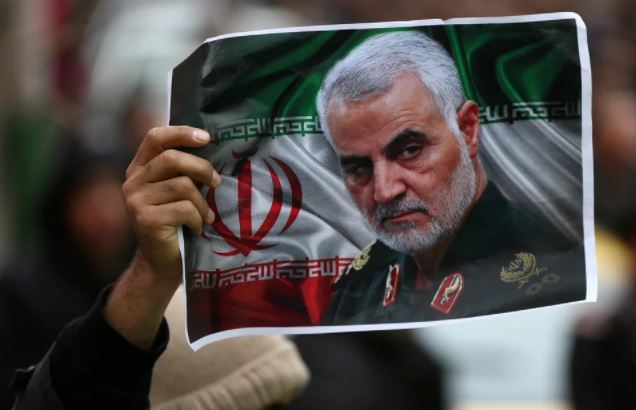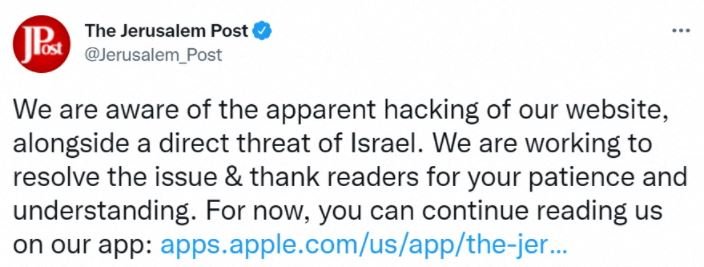Twitter account for the Israeli newspaper Maariv and the Jerusalem Post websites were hacked, apparently by a pro-Iranian group, which posted a picture of the attacked Dimona nuclear facility and a threatening message instead of the regular content of these platforms: “We are close to you; where you don’t think”, the message reads. As some readers may already have noted, this incident occurred during the second anniversary of the death of Qasem Soleimani, commander of the Iranian Revolutionary Guardians (IRGC).
This photo was also published in the Maariv newspaper, in which a retweet of an account has also appeared that included an illustration of Soleimani and the commander of the Popular Mobilization Forces (FMP) Abu Mahdi al Muhandis, who died during the bombing of the Baghdad airport.

In this regard, the Jerusalem Post published the following message on its social media platforms: “We are aware of the apparent hacking of our website, along with a direct threat to Israel. We are working to resolve the problem and we thank readers for their patience and understanding.” The two affected newspapers have already re-established their online publications.

On the other hand, the Iranian authorities announced last week that the trial against those allegedly implicated in Soleimani’s death will start in the first quarter of 2022, while the Iranian Foreign Ministry stressed that the event is a clear example of “State terrorism” by the United States.
Last week, Israeli Foreign Minister Yair Lapid said that the country is prepared to “act alone” against Iran and its nuclear program if necessary amid a rising tension ambient. Besides, Israeli Defense Minister Benjamin Gantz unveiled on December 11 during a visit to the United States that he has ordered the Army to prepare for the possibility of a military attack on Iran, related to the possible reactivation of 2015 nuclear deal.
In response, Iranian General Gholamali Rashid warned the United States and Israel against any attack: “Any threat to Iran’s nuclear program or military bases from the Zionist regime is not possible without the ‘green light’ and support from the United States”, he stated.
To learn more about information security risks, malware variants, vulnerabilities and information technologies, feel free to access the International Institute of Cyber Security (IICS) websites.

He is a well-known expert in mobile security and malware analysis. He studied Computer Science at NYU and started working as a cyber security analyst in 2003. He is actively working as an anti-malware expert. He also worked for security companies like Kaspersky Lab. His everyday job includes researching about new malware and cyber security incidents. Also he has deep level of knowledge in mobile security and mobile vulnerabilities.











